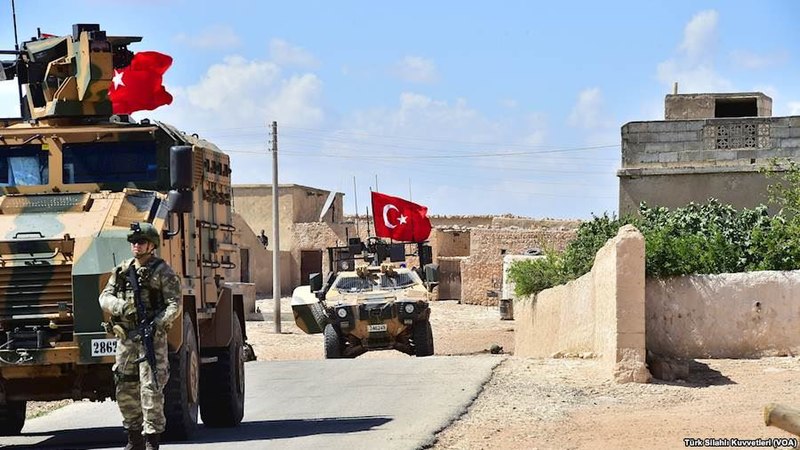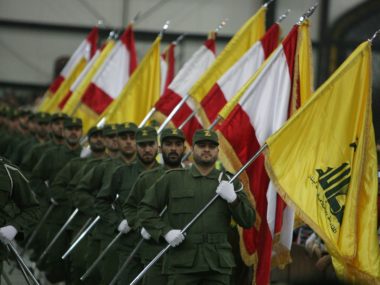The Turkish incursion into northern Syria has revealed a central truth in international affairs: that the future of military interventions will not be Vietnam-style imbroglios or long wars of attrition. They will be mostly one-off cross-border incursions of limited lifespans, casualties, or attention (though, contrary to many recent cross-border operations, Turkey’s latest incursion has attracted a lot of attention). The terrain will be difficult and rural; the level of governance minimal.
This holds important implications for the future of global security, as well as for post-World War II notions of sovereignty and self-defense.
Cross-border incursions can take two forms: in permissive incursions, the country whose borders are invaded either supports or invites the operation, turns a blind eye, or is powerless to do anything. In punitive incursions, the intervening country is looking to punish its neighbor, either for supporting a nonstate armed actor, or not doing enough to prevent its territory from becoming a safe haven.
The bulk of limited incursions are aimed, not at the assets of the neighboring state, but at diminishing the capabilities of an armed actor that either enjoys the backing of the state or is there against the wishes of the intervening state. “Self defense” (which Turkey claims it is acting out of) is increasingly given as the rationale for incursion by intervening states (as if it provides a blank check to invade their neighbors). In the case of Turkey and Syria, the Syrian Kurds did not attack Turkey. The Turkish incursion occurred when it did because of the removal of roughly 100 American troops from Syria to Kuwait and Jordan, which implicitly gave the Turks a green light to intervene.
What’s also remarkable are the longstanding norms around these incidents. Going back to at least the early 19th century, countries have generally observed a norm of not advancing deeper than 15 kilometers into their neighbor’s territory, a relic of evolving maritime “hot pursuit” norms and Westphalian norms of territorial sovereignty. Borders are not sacrosanct, nor have they ever been. Might makes right in international relations. And yet there are ample examples of powerful neighbors exercising restraint with respect to this international norm. The Indian military has done so on two recent occasions, launching limited cross-border strikes into Pakistan-administered territory 2019, and into Myanmar in 2015. The former was arguably a punitive incursion, whereas the latter was permissive, insofar as it had the tacit support of the Burmese military.
Violations of sovereignty and cross-border raids, despite being destructive in their own right, rarely escalate into interstate hostilities. The reasons are manifold: First, the majority of these missions are permissive in nature, not punitive, and so they are not seen as acts of war per se. Second, the international community and UN Security Council rarely sanction the intervening state, even if “self- defense,” as stipulated under Article 51, does not expressly permit states to take their defense into their own hands and go in guns ablaze. Third, the 15 kilometer norm has been effective at signaling to the state whose sovereignty is violated that the incursion will be limited in time, space, and scale, and that the operation does not presage a permanent occupation, peripheral uprising, or further advance by a neighboring force. Colombia’s 2008 raid into Ecuador against FARC militants elicited a strong reaction from Quito and Caracas, yet the tensions died down fairly quickly. Finally, the level of state control in these areas is often weak, intermittent, or outsourced to local groups, whether ethnic, criminal, or otherwise. While this is often the source of cross-border tensions, it also helps explain why such interventions tend to stay contained.
Consider a century ago when Pancho Villa’s banditos carried out a deadly incursion into New Mexico in 1916. Villa’s raid triggered a kinetic response from the US Army—the so-called Punitive Expedition wherein American forces led by John J. Pershing crossed into Mexico to pursue Villa. The expedition failed, and offers two instructive lessons for today: First, similar to Syria, Mexico was at the time in the midst of a civil war, which contributed to the expedition’s failure. The rebels had been hardened by years of fighting but also had the advantage of local public support. According to the BBC, even without American support, the Kurdish rebels in northern Syria know the terrain and so have been able to tactically dodge their Turkish adversaries and avoid a direct conflict.
Second, Villa was on the side of the Americans before he turned against them. It’s not a perfect parallel, but loyalties are fluid, and so the Syrian Kurds’ announcement of a pact with Assad’s government, which until recently they were at war with, is not surprising. Similar about-faces were common during the war in Angola, which also saw shifts in support among its external actors, along with cross-border incursions.
What does this mean for Syria? There are three key takeaways: First, Turkey will likely fail to dislodge the Kurds, regardless of what the United States does. That is not a recommendation (or excuse) for American inaction, but history suggests that these expeditions do not enjoy local support and so rooting out militants based in border areas is not an easy assignment, even for NATO’s second largest military. Second, expect Syria’s military to make a show of force, but a limited one. Its support of the Kurds has always been opportunistic and tenuous, even during the best of times. The Turkish military will not remain in or occupy Syria’s north, despite its calls for a “safe zone.” The safe zone will be outsourced to other local armed actors and will likely remain neither “safe” nor a neatly delineated “zone.” Refugees will more than likely spill out of the region, rather than flow into it, creating a new set of cross-border challenges for Ankara.
Finally, the longer that Turkey’s incursion drags on, the less support it will have internationally (which is already minimal). Already Russia is calling on Turkey to move its forces back, a rare instance of agreement between Washington and Moscow.
Ankara is learning the same lesson Pershing did a century ago: Cross-border missions against non-state actors that enjoy local support often end badly.






